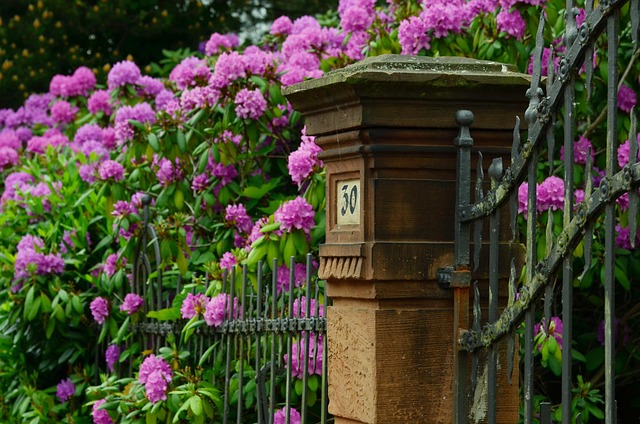New Bedford, MA, is embracing eco-friendly fencing materials as a sustainable alternative to traditional options. This shift brings numerous benefits for homeowners and local ecosystems alike. From reducing environmental impact to enhancing property values, choosing green fencing is a smart decision. The following article explores various eco-friendly fence options available in New Bedford, highlights their advantages, compares them with traditional choices, offers installation tips, and discusses local efforts promoting sustainable outdoor spaces.
- Exploring Eco-Friendly Fencing Options in New Bedford
- Benefits of Sustainable Fencing Materials for Your Property
- Traditional vs. Eco-Conscious Fence Choices
- Installation and Maintenance Tips for Green Fences
- Local Initiatives Promoting Eco-Friendly Outdoor Spaces
Exploring Eco-Friendly Fencing Options in New Bedford
New Bedford, MA, residents increasingly look for eco-friendly fencing options as part of their home improvement projects, and for good reason. The city’s commitment to environmental sustainability makes it a natural fit for environmentally conscious consumers. Exploring these greener alternatives offers several benefits beyond aesthetic appeal. First, many eco-friendly materials are durable and low maintenance, ensuring long-lasting performance with minimal upkeep. Second, they significantly reduce the carbon footprint associated with traditional fencing by utilizing recycled or renewable resources.
Moreover, New Bedford’s diverse landscape and local regulations often favor flexible fencing solutions that blend seamlessly into natural settings. Eco-friendly options like bamboo, recycled plastic, and treated wood not only meet these requirements but also contribute to biodiversity and water conservation. With careful selection and installation, these materials can enhance the value of properties while promoting a healthier environment for both residents and wildlife.
Benefits of Sustainable Fencing Materials for Your Property
By opting for eco-friendly fencing materials, homeowners in New Bedford, MA, can significantly enhance their property’s appeal and contribute to a greener environment. These sustainable options offer a range of benefits that go beyond aesthetics. Firstly, they are typically made from recycled or renewable resources, reducing the carbon footprint associated with traditional fencing production. This choice aligns with the growing demand for environmentally conscious living and can attract environmentally aware buyers if you ever decide to sell your home.
Moreover, eco-friendly fences often have a longer lifespan compared to conventional ones, requiring less maintenance and fewer replacements over time. Many of these materials are designed to be durable and resistant to rot, decay, and rust, ensuring they stand the test of time. Additionally, sustainable fencing can provide excellent privacy and security while promoting biodiversity by offering habitats for local wildlife, creating a harmonious blend of functionality and ecological responsibility.
Traditional vs. Eco-Conscious Fence Choices
In New Bedford, MA, as awareness of environmental impact grows, so does the demand for eco-friendly fencing options. Traditional fence materials like wood and vinyl often come with significant drawbacks, from deforestation and chemical production to long-term maintenance and disposal issues. These conventional choices contribute to a range of ecological problems, from water pollution to greenhouse gas emissions.
In contrast, eco-conscious fence materials offer a sustainable alternative. Products made from recycled plastic, bamboo, or organic fibers not only reduce environmental footprints but also boast unique benefits like durability, low maintenance, and long lifespans. By choosing these innovative options, New Bedford residents can contribute to a greener landscape while enhancing the aesthetics of their properties.
Installation and Maintenance Tips for Green Fences
When installing an eco-friendly fence, proper technique is key to ensuring its longevity. Start by preparing the ground, removing any weeds or debris, and ensuring the area is level. Follow the manufacturer’s instructions for assembly, using only recommended tools and hardware. For natural materials like bamboo or wood, regular cleaning and treatment with organic preservatives can extend their lifespan.
Maintenance requires minimal effort but consistent attention. Inspect your fence regularly for signs of damage, rot, or pest infestation. Repair or replace damaged sections promptly to maintain the fence’s structural integrity and aesthetic appeal. Light pruning of living fences like hedges keeps them neat and promotes healthy growth. Remember, eco-friendly fencing materials offer not just visual benefits but also contribute to a healthier environment, making regular care an investment in both your landscape and the planet.
Local Initiatives Promoting Eco-Friendly Outdoor Spaces
New Bedford, MA, has been actively embracing eco-friendly practices across various sectors, and outdoor spaces are no exception. The city has launched several initiatives to promote sustainable landscapes, including the use of eco-friendly fencing materials. Local communities and organizations have taken it upon themselves to lead by example, opting for environmentally conscious solutions that not only enhance aesthetics but also contribute to a greener future.
These initiatives often involve collaborating with local businesses and manufacturers specializing in sustainable products. By choosing natural, recyclable, or compostable fencing options, New Bedford residents are reducing their carbon footprint while creating harmonious outdoor environments. The city’s efforts serve as a model for other communities, demonstrating that embracing eco-friendly practices can result in beautiful, durable, and ecologically responsible outdoor spaces.
